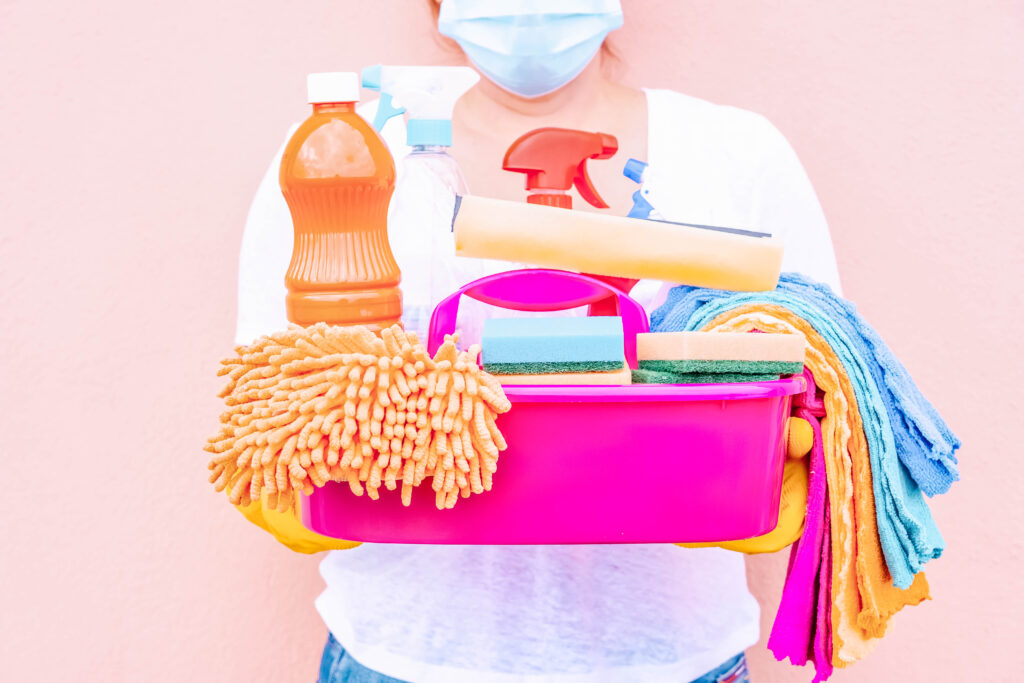Understanding ADHD and Cleaning Challenges
Individuals with ADHD often struggle with maintaining organised and clutter-free environments due to difficulties with executive functioning, attention regulation, and impulsivity. Cleaning tasks can feel overwhelming, leading to procrastination, distraction, and difficulty staying on track. Common challenges include:
– Difficulty Initiating Tasks: Starting cleaning tasks can be challenging for individuals with ADHD, as they may struggle to prioritise and initiate actions amidst competing distractions.
– Lack of Focus and Sustained Attention: Maintaining focus on cleaning tasks for extended periods can be difficult, leading to incomplete or half-finished projects.
– Impulsivity and Distraction: Impulsive behaviours and distractibility can derail cleaning efforts, causing individuals to become side tracked or lose interest in the task at hand.
The Importance of ADHD Diagnosis
Obtaining a formal ADHD diagnosis is essential for understanding and addressing cleaning challenges effectively. A diagnosis provides clarity and validation, guiding individuals towards appropriate support and strategies for managing ADHD symptoms. Through comprehensive assessments conducted by qualified healthcare professionals, including psychiatrists or psychologists, individuals can receive accurate diagnoses and personalised treatment plans tailored to their needs.
Practical Strategies for Decluttering with ADHD
- Break Tasks into Manageable Steps:
- Divide cleaning tasks into smaller, more manageable steps to prevent overwhelm and facilitate progress.
- Focus on one area or task at a time, setting achievable goals to maintain motivation and momentum.
- Set Clear and Specific Goals:
- Clearly define the desired outcomes of cleaning and decluttering efforts to provide clarity and direction.
- Establish specific objectives, such as decluttering a particular room or clearing a designated space, and break them down into actionable steps.
- Use Visual Cues and Reminders:
- Visual cues, such as checklists, sticky notes, or colour-coded labels, can help individuals with ADHD stay organised and on track with cleaning tasks.
- Place visual reminders in prominent locations to prompt action and reinforce routines.
- Implement Time Limits and Breaks:
- Set time limits for cleaning sessions to prevent burnout and maintain focus.
- Take regular breaks to recharge and refocus attention, incorporating short periods of rest or engaging in enjoyable activities to prevent fatigue and boredom.
By understanding how ADHD impacts cleaning habits, seeking a formal diagnosis, and implementing practical strategies for decluttering effectively, individuals can overcome challenges and create organised and tidy environments conducive to well-being and productivity. Remember, progress may take time, patience, and persistence, but with support and determination, individuals with ADHD can achieve their cleaning goals and enjoy the benefits of an orderly living space.
Final Dusting
Cleaning with ADHD requires understanding, patience, and tailored strategies. By breaking tasks into manageable steps, setting clear goals, using visual cues, and implementing time limits, individuals with ADHD can navigate the challenges of cleaning and decluttering. Seeking a formal diagnosis and appropriate support can further enhance the effectiveness of these strategies, leading to a more organised and stress-free living environment.




